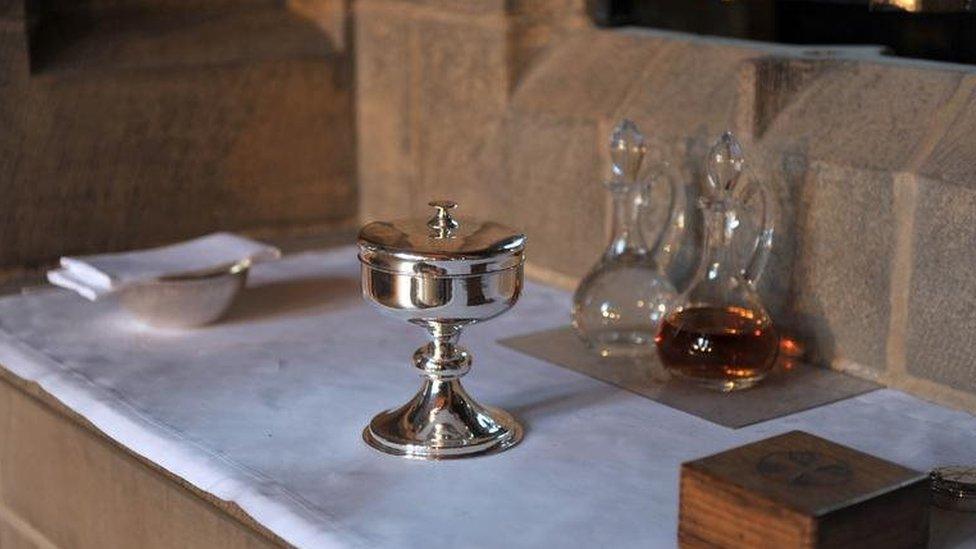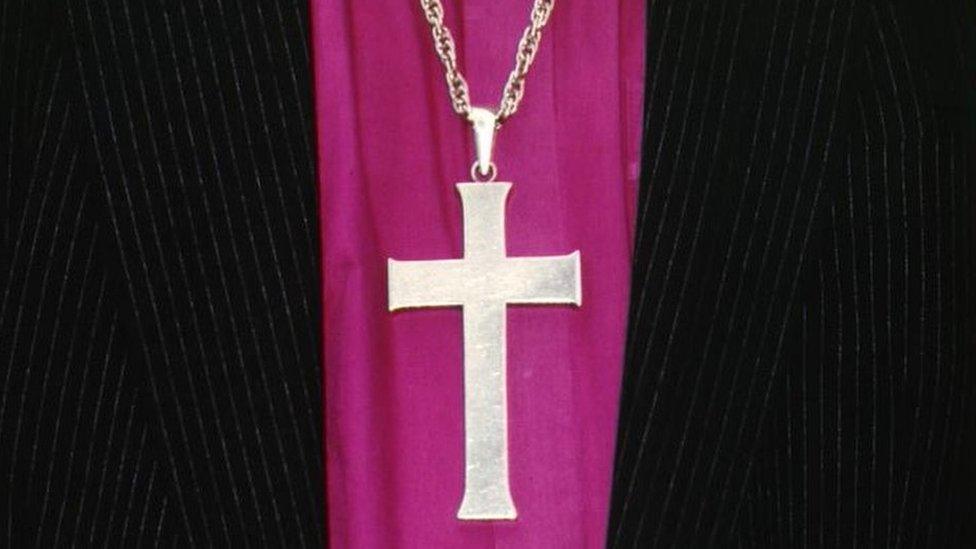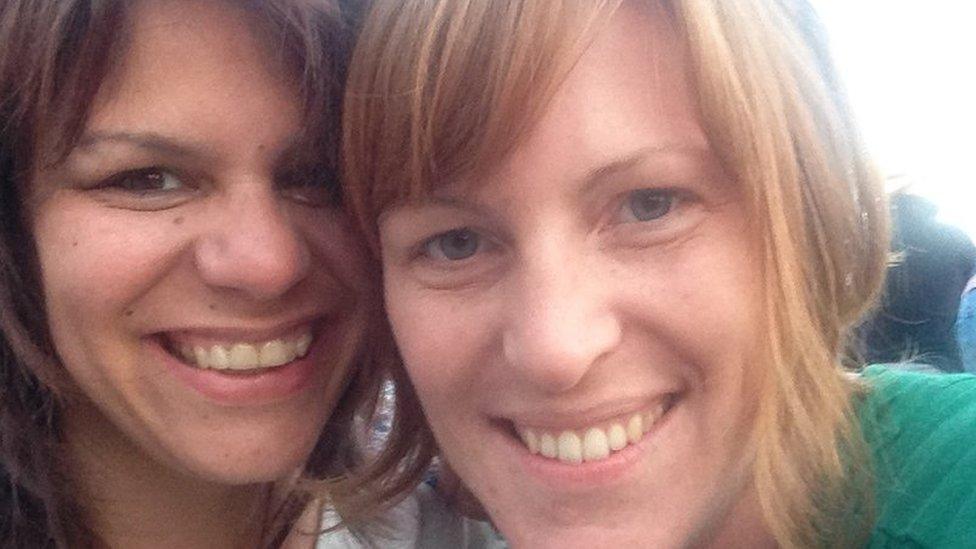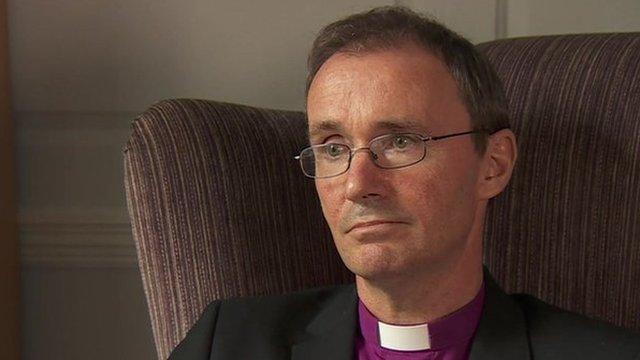Same-sex marriage: Church of England 'should not change stance'
- Published
Vicar and broadcaster Rev Richard Coles says elements of the report are welcome, but it was "a sideways step"
The Church of England should not change its opposition to same-sex marriage but it should adopt a "fresh tone and culture of welcome and support" for gay people, a report has said.
The House of Bishops report, external said there was "little support" for changing the Church's teaching on marriage", that it was between one man and one woman.
It also said the Church needed to repent for homophobic attitudes.
The Church's General Synod will discuss the report in London next month.
The report follows three years of private "shared conversations" about the Church's future policy on sexuality.
It also said all potential clergy - straight and gay - will be asked about their sexual conduct and will face the same questions about their lifestyle.
'Angry and disappointed'
The Right Reverend Graham James, Bishop of Norwich, said that "present arrangements for asking ordinands [priests in training] and clergy about their relationships and lifestyle are not really working very well".
He said there was "too much concentration" on whether they were in sexually active same-sex relationships rather than framing questions about sexual morality.
"All clergy are asked at their ordination whether they will fashion their lives 'after the way of Christ'," he said.
"We believe we should revisit how this is explored beforehand so the same questions are addressed to everybody without distinction."
Bishops report on same-sex marriage is a "failure of leadership", says gay Anglican priest
But Andrew Foreshaw-Cain, a parish priest in north London who is in a same-sex marriage, told BBC Radio 4's The World at One programme that the report was "a failure of leadership".
He added: "The LGBT community is going to be extremely hurt by this. We were asked to trust our leaders and many of us made ourselves vulnerable during the shared conversations process and none of that has been heard.
"The bishops have gone ahead and talked as if we didn't take part in it and as if we are not there.
"The majority of practising Anglicans are now in favour of supporting same-sex relationships and none of that is recognised by the bishops."

Analysis

By Martin Bashir, BBC religious affairs correspondent
For an ancient institution, three years of "shared conversations" around the subject of same sex marriage may not seem like a long time but today's report from the House of Bishops has already been met with widespread anger by lesbian and gay members of the Church of England.
The decision to maintain the church's position that marriage is "the lifelong union of one man and one woman" means that the courage and commitment displayed by members of the LGBT community in discussing the most intimate aspects of their lives has come to nought.
The Lesbian and Gay Christian Movement has already announced that while it will work with the Church of England, it will not wait indefinitely for change.
But for conservative evangelicals within the Church of England, the bishops have upheld the authority of scripture against the impact of cultural change. Thus, they argue, marriage is between a man and a woman, which is faithful to the teachings of Christ.

In an open letter, external to the bishops, the Lesbian and Gay Christian Movement said the report was proposing a "don't ask, don't tell" plan for gay clergy.
"This essentially asks clergy to dissemble and keep the nature of their relationships hidden - far from equalising the situation between straight and gay clergy, it pushes LGBTI+ clergy back into the closet," it said.
The organisation's chief executive Tracey Byrne said: "LGBTI+ people who have participated in this process in good faith, at considerable personal cost, will feel angry and disappointed that there appears so little real change...
"This is another missed opportunity which further undermines the mission of the established Church to convey the gospel promise of good news for everyone."
But, in response, Mr James said: "This is not 'don't ask, don't tell' in any shape or form."

Jayne Ozanne, a member of the Church's General Synod who is an openly gay Christian, said: "Believing you can change your tone so that we're given 'welcome and support' whilst teaching that our being in a loving faithful same-sex relationship, which by definition has to be outside of marriage because you won't permit it, is sinful is ludicrous."
Susie Leafe of the group Reform, whose members are mostly evangelical Anglicans, has praised the stance on marriage and the plan to welcome everyone into the Church.
However, she has concerns about "permitting maximum freedom within this law".
"In adopting a framework which seeks to take a middle path between biblical truth and cultural sensitivities, the bishops have ensured theological incoherence and hypocrisy will prevail for the foreseeable future, with all the hurt and confusion that will cause," she said.
"In so doing they have failed in their primary pastoral duty to teach truth and drive away error."
- Published4 September 2016

- Published9 July 2016

- Published3 September 2016
